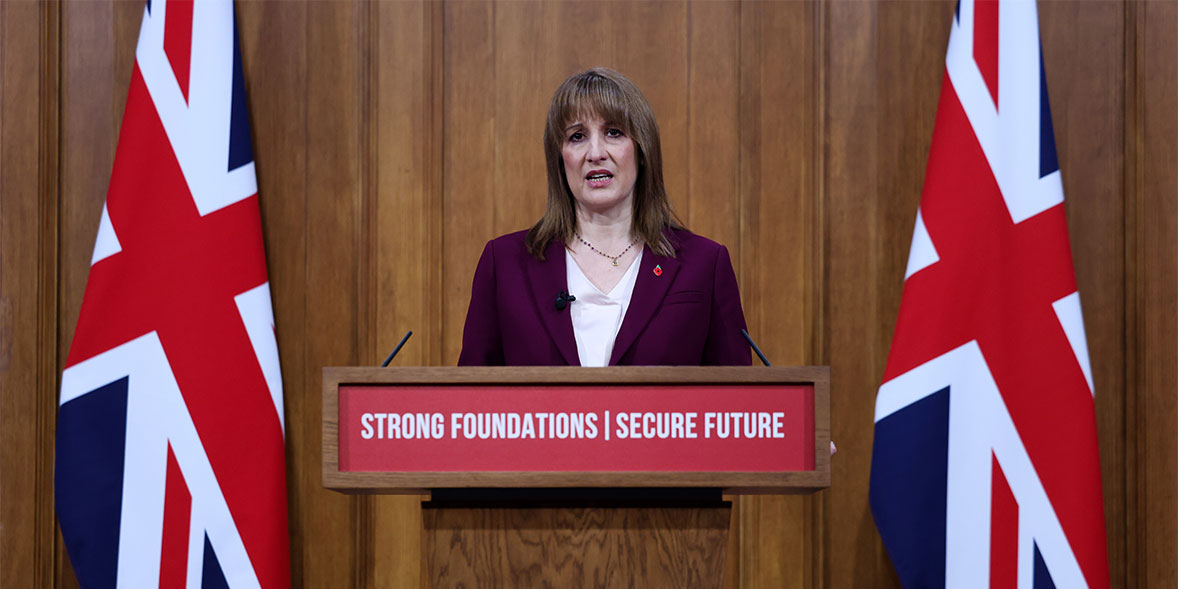
Check your finances are retirement-ready
The specialists at Destination Retirement can help you plan with confidence.
Book a free chatWhich? earns a commission to fund its not-for-profit mission if you buy a product via this service
By clicking a retailer link you consent to third-party cookies that track your onward journey. This enables W? to receive an affiliate commission if you make a purchase, which supports our mission to be the UK's consumer champion.

With just two weeks to go until the Budget, speculation is mounting about the changes the Chancellor might have in store – and pensions remain firmly on the table.
Here we explain what the latest rumours could mean for your retirement savings.
Chancellor Rachel Reeves is reportedly planning to cap the amount you can contribute to your pension via salary sacrifice at £2,000 a year.
Above this threshold, an employee would pay the full rate of National Insurance on their pension contributions.
Salary sacrifice involves giving up part of your salary, in return for which your employer pays an equivalent amount into your pension.
Because your salary is lower, the amount of income tax and National Insurance you pay is reduced. Your employer also saves the National Insurance that would have been payable on the portion of your salary that gets directed to your pension.
There is currently no limit on the amount that an employee can put into their pension under salary sacrifice.
The change in rules would save the government an estimated £2bn per year, but there are concerns that it would cause confusion and disincentivise pension saving.
HMRC figures from 2019 showed that 30% of private sector employees and 9% of public sector employees used a salary sacrifice arrangement for their pension contributions.
The biggest pension-related rumour in the run-up to this Budget has apparently now been put to bed, with the Treasury having ruled out any changes to the pension tax-free cash allowance, according to recent reports.
However, this has not yet been officially confirmed.
Under current rules, you can take a tax-free lump sum from your defined contribution pension from the age of 55. The allowance is set at 25% of your pot, up to a lifetime cap of £268,275.
Concerns about a reduction in this limit has led to a spike in savers accessing their cash. Almost 112,000 people took their 25% tax-free pension lump sum in the six months to March 2025 – a 33% rise on the same period a year earlier.

The specialists at Destination Retirement can help you plan with confidence.
Book a free chatWhich? earns a commission to fund its not-for-profit mission if you buy a product via this service
There are rumours of a 2p rise in the basic rate of income tax, offset by an equivalent cut to National Insurance. This would have a net neutral impact on working people, who pay both taxes.
However, it would negatively impact pensioners (and landlords), who do not generally pay National Insurance and would therefore only be impacted by the 2p income tax rise.
According to calculations by investment platform AJ Bell, someone with a taxable retirement income of £35,000 would face a tax rise of almost £450, while for a retiree with an income of £65,000 this rise would be more than £1,000.
Income tax thresholds, which determine how much you can earn before moving into a higher tax band, are currently frozen until at least 2028.
If the freeze was extended for another year, it would bring in an additional £10bn for the government. That's because, as incomes rise, more people start paying higher rates even though the tax bands themselves remain unchanged.
Changes to tax relief on pension contributions are rumoured in the run-up to every Budget.
The relatively high cost of this relief on pensions (particularly for higher earners) makes it a potentially attractive way for the Treasury to raise money.
When you pay into a pension, the government adds tax relief at your highest rate of income tax: 20% for basic-rate, 40% for higher-rate and 45% for additional-rate taxpayers.
This means if you're a basic-rate taxpayer, you only need to pay £80 from your salary into your pension to boost it by £100. That's because the government adds £20, the amount it would have taken in tax from £100 of your salary.
It provides a valuable boost for savers, but is expensive for the government – a net cost of £53bn in 2023-24.
One option previously put forward is to introduce a flat rate for everyone, potentially around 25-30%. This would benefit basic-rate savers, but reduce relief for those on higher incomes.
The government could save even more money by restricting tax relief to the basic rate (20%) for everyone.
A change to the pension tax relief system would, however, require a huge administrative overhaul of the way that schemes are operated.